Thank you! Your submission has been received!
Oops! Something went wrong while submitting the form.

Text Link
Purple Paradise

35
https://media.aeropage.io/api/docproxy/token/b4c9c7104c2981023a27e3f3456bfd6a/rec93c7BCc5iQMcsF
39.99
rec93c7BCc5iQMcsF
49.99
Delta Extrax - THCa Live Sugar 12000mg Gummies | Adios MF- Purple Paradise
Text Link
Strawberry Delight

84
https://media.aeropage.io/api/docproxy/token/b4c9c7104c2981023a27e3f3456bfd6a/recAXr6cn850lKse5
39.99
recAXr6cn850lKse5
49.99
Delta Extrax - THCa Live Sugar 12000mg Gummies | Adios MF- Strawberry Delight
Text Link
Raspberry Lemonade

132
https://airtable.com/appWUsGD3byrYcN3l/tblEtb1aIH5Xk4Nh9/viwx3HbRc2OBn02xl/rec9WLlZ8q5wcEfPp/fld2GYgNi5VwfLA0b/attER72Nk8fDacclj
39.99
rec9WLlZ8q5wcEfPp
49.99
Delta Extrax - THCa Live Sugar 12000mg Gummies | Adios MF- Raspberry Lemonade
Text Link
Peach Rings

14
https://airtable.com/appWUsGD3byrYcN3l/tblEtb1aIH5Xk4Nh9/viwx3HbRc2OBn02xl/recakNGjXtbtekSMd/fld2GYgNi5VwfLA0b/atteVU7CWQbEixUwy
39.99
recakNGjXtbtekSMd
49.99
Delta Extrax - THCa Live Sugar 12000mg Gummies | Adios MF- Peach Rings
Text Link
Berry Blast

1
https://media.aeropage.io/api/docproxy/token/b4c9c7104c2981023a27e3f3456bfd6a/recIoqkg4bWxxOQXj
recIoqkg4bWxxOQXj
34.99
ghost - Graveyard THCP Gummies - 15,000mg- Berry Blast
Text Link
Forbidden Razz

31
https://media.aeropage.io/api/docproxy/token/b4c9c7104c2981023a27e3f3456bfd6a/recNR9CBoNjzhqVD5
recNR9CBoNjzhqVD5
34.99
ghost - Graveyard THCP Gummies - 15,000mg- Forbidden Razz
Text Link
Mystery

49
https://media.aeropage.io/api/docproxy/token/b4c9c7104c2981023a27e3f3456bfd6a/recoIjb56MLWlBiJT
recoIjb56MLWlBiJT
34.99
ghost - Graveyard THCP Gummies - 15,000mg- Mystery
Text Link
Watermelon Lemonade

29
https://media.aeropage.io/api/docproxy/token/b4c9c7104c2981023a27e3f3456bfd6a/recyikCdSOeipHxj0
recyikCdSOeipHxj0
34.99
ghost - Graveyard THCP Gummies - 15,000mg- Watermelon Lemonade
Text Link
Tropical Punch

2
https://media.aeropage.io/api/docproxy/token/b4c9c7104c2981023a27e3f3456bfd6a/recf9djrdROGNREOn
recf9djrdROGNREOn
34.99
ghost - Graveyard THCP Gummies - 15,000mg- Tropical Punch
Text Link

Watermelon Zkittelz + Strawberry Gelato Kush
0
https://airtable.com/appWUsGD3byrYcN3l/tblEtb1aIH5Xk4Nh9/viwx3HbRc2OBn02xl/recFjbAKpZqz84sSP/fld2GYgNi5VwfLA0b/attPYOdw89GJuAJXX
recFjbAKpZqz84sSP
39.99
Flying Horse - Stoner Blend 3-in-1 Disposable Vape - 9g-Watermelon Zkittelz + Strawberry Gelato Kush
Text Link

Polar Express + Skywalker OG
7
https://airtable.com/appWUsGD3byrYcN3l/tblEtb1aIH5Xk4Nh9/viwx3HbRc2OBn02xl/reckuzIow5iSHPRb4/fld2GYgNi5VwfLA0b/attVT6QBnXcNVNJBP
reckuzIow5iSHPRb4
39.99
Flying Horse - Stoner Blend 3-in-1 Disposable Vape - 9g-Polar Express + Skywalker OG
Text Link

AK-47 + Blue Flame Nuggs
10
https://airtable.com/appWUsGD3byrYcN3l/tblEtb1aIH5Xk4Nh9/viwx3HbRc2OBn02xl/recTd1hr7EoMKUYiT/fld2GYgNi5VwfLA0b/att3O5azpuUUe9W84
recTd1hr7EoMKUYiT
39.99
Flying Horse - Stoner Blend 3-in-1 Disposable Vape - 9g-AK-47 + Blue Flame Nuggs
Text Link

Fruity Pebbles + Pink Panties
0
https://airtable.com/appWUsGD3byrYcN3l/tblEtb1aIH5Xk4Nh9/viwx3HbRc2OBn02xl/recDWhYqyBddHDY7R/fld2GYgNi5VwfLA0b/attNyhOroOwZUIy3Y
recDWhYqyBddHDY7R
39.99
Flying Horse - Stoner Blend 3-in-1 Disposable Vape - 9g-Fruity Pebbles + Pink Panties
Text Link

Sour Diesel Runtz + Granddaddy Purple
0
https://airtable.com/appWUsGD3byrYcN3l/tblEtb1aIH5Xk4Nh9/viwx3HbRc2OBn02xl/rec9SxAH6vkn5L4Sm/fld2GYgNi5VwfLA0b/att7YNfYfT9VEJnkn
rec9SxAH6vkn5L4Sm
39.99
Flying Horse - Stoner Blend 3-in-1 Disposable Vape - 9g-Sour Diesel Runtz + Granddaddy Purple
Text Link

Strawberry Pop + After Love
5
https://airtable.com/appWUsGD3byrYcN3l/tblEtb1aIH5Xk4Nh9/viwx3HbRc2OBn02xl/recVQGXKawtTvOVun/fld2GYgNi5VwfLA0b/attg7FAQnWseX4Han
recVQGXKawtTvOVun
39.99
Flying Horse - Stoner Blend 3-in-1 Disposable Vape - 9g-Strawberry Pop + After Love
Text Link

Blue Dream + Pineapple Express
0
https://airtable.com/appWUsGD3byrYcN3l/tblEtb1aIH5Xk4Nh9/viwx3HbRc2OBn02xl/recs8t31B5bT7j89K/fld2GYgNi5VwfLA0b/att6UZAJlGoYNF6QI
recs8t31B5bT7j89K
39.99
Flying Horse - Stoner Blend 3-in-1 Disposable Vape - 9g-Blue Dream + Pineapple Express
Text Link

Birthday Cake + Ice Cream Cake
0
https://airtable.com/appWUsGD3byrYcN3l/tblEtb1aIH5Xk4Nh9/viwx3HbRc2OBn02xl/recIQtl6PUah9ExoT/fld2GYgNi5VwfLA0b/attsCyiUzaIvj7pnu
recIQtl6PUah9ExoT
39.99
Flying Horse - Stoner Blend 3-in-1 Disposable Vape - 9g-Birthday Cake + Ice Cream Cake
Text Link.webp)
.webp)
Zkittlez Haze + Blueberry Bliss Out
12
rect7e2VHbNzMk02V
39.99
Flying Horse - Stoner Blend 3-in-1 Disposable Vape - 9g-Zkittlez Haze + Blueberry Bliss Out
Text Link.webp)
.webp)
Sugar Gas Rush +Cotton Candy Crush
4
recx4No8B0OaK5J9A
39.99
Flying Horse - Stoner Blend 3-in-1 Disposable Vape - 9g-Sugar Gas Rush +Cotton Candy Crush
Text Link

White Ghost
4
https://media.aeropage.io/api/docproxy/token/b4c9c7104c2981023a27e3f3456bfd6a/recnOO9VgffnEAgIF
recnOO9VgffnEAgIF
24.99
Kush Burst - Super Knockout Blend Vape Pens - 2.2g-White Ghost
Text Link

Pink Candy Kush
15
https://media.aeropage.io/api/docproxy/token/b4c9c7104c2981023a27e3f3456bfd6a/recLsDdWSrOCv9J3D
recLsDdWSrOCv9J3D
24.99
Kush Burst - Super Knockout Blend Vape Pens - 2.2g-Pink Candy Kush
Text Link

Animal Cookies
44
https://media.aeropage.io/api/docproxy/token/b4c9c7104c2981023a27e3f3456bfd6a/rec5q6Y4g92ex7mR7
rec5q6Y4g92ex7mR7
24.99
Kush Burst - Super Knockout Blend Vape Pens - 2.2g-Animal Cookies
Text Link

Blue Fire
42
https://media.aeropage.io/api/docproxy/token/b4c9c7104c2981023a27e3f3456bfd6a/reccKe22oQff7NUpC
reccKe22oQff7NUpC
24.99
Kush Burst - Super Knockout Blend Vape Pens - 2.2g-Blue Fire
Text Link

Lemon Zkittles
29
https://media.aeropage.io/api/docproxy/token/b4c9c7104c2981023a27e3f3456bfd6a/recQHowW2gjHQzx2M
recQHowW2gjHQzx2M
24.99
Kush Burst - Super Knockout Blend Vape Pens - 2.2g-Lemon Zkittles
Text Link

Space Octane
61
https://media.aeropage.io/api/docproxy/token/b4c9c7104c2981023a27e3f3456bfd6a/recBvPvi4r2oPkIjF
recBvPvi4r2oPkIjF
24.99
Kush Burst - Super Knockout Blend Vape Pens - 2.2g-Space Octane
Text Link
Rainbow Domes

0
https://airtable.com/appWUsGD3byrYcN3l/tblEtb1aIH5Xk4Nh9/viwx3HbRc2OBn02xl/recUYt0R2Fb7ZPd1T/fld2GYgNi5VwfLA0b/attcinkBaM9zo8Dqe
recUYt0R2Fb7ZPd1T
39.99
Dome Wrecker - D9 | THC-P Gummies - 11,000mg- Rainbow Domes
Text Link.webp)
Sour Blue Razz
.webp)
37
https://airtable.com/appWUsGD3byrYcN3l/tblEtb1aIH5Xk4Nh9/viwx3HbRc2OBn02xl/rec8Raw71TzeoSpSZ/fld2GYgNi5VwfLA0b/attD85TFZuLFlbNjm
rec8Raw71TzeoSpSZ
39.99
Dome Wrecker - D9 | THC-P Gummies - 11,000mg- Sour Blue Razz
Text Link.webp)
Cherry Limeade
.webp)
91
https://airtable.com/appWUsGD3byrYcN3l/tblEtb1aIH5Xk4Nh9/viwx3HbRc2OBn02xl/recCstHyE5lxu0FgO/fld2GYgNi5VwfLA0b/attqcVGX84v5MTriP
recCstHyE5lxu0FgO
39.99
Dome Wrecker - D9 | THC-P Gummies - 11,000mg- Cherry Limeade
Text Link

Lemon Cake
15
https://media.aeropage.io/api/docproxy/token/b4c9c7104c2981023a27e3f3456bfd6a/reciFEYb9Zdp2582B
reciFEYb9Zdp2582B
34.99
ghost - All-in-One Slide Piece THCa 7g Disposable Vape Pens-Lemon Cake
Text Link

Grape Ape
14
https://media.aeropage.io/api/docproxy/token/b4c9c7104c2981023a27e3f3456bfd6a/recWvJ8vlVFD67xzc
recWvJ8vlVFD67xzc
34.99
ghost - All-in-One Slide Piece THCa 7g Disposable Vape Pens-Grape Ape
Text Link

Trainwreck
22
https://media.aeropage.io/api/docproxy/token/b4c9c7104c2981023a27e3f3456bfd6a/recVfzDK5p2e5WOYG
recVfzDK5p2e5WOYG
34.99
ghost - All-in-One Slide Piece THCa 7g Disposable Vape Pens-Trainwreck
Text Link

Chem Dog
25
https://media.aeropage.io/api/docproxy/token/b4c9c7104c2981023a27e3f3456bfd6a/recKgKpoqsUj3zMvc
recKgKpoqsUj3zMvc
34.99
ghost - All-in-One Slide Piece THCa 7g Disposable Vape Pens-Chem Dog
Text Link

Blueberry Muffin
17
https://media.aeropage.io/api/docproxy/token/b4c9c7104c2981023a27e3f3456bfd6a/rechxcc47ZCVzFtOm
rechxcc47ZCVzFtOm
34.99
ghost - All-in-One Slide Piece THCa 7g Disposable Vape Pens-Blueberry Muffin
Text Link

Tropicana Cookies
18
https://media.aeropage.io/api/docproxy/token/b4c9c7104c2981023a27e3f3456bfd6a/recx2hXt5rdcNuOrJ
recx2hXt5rdcNuOrJ
34.99
ghost - All-in-One Slide Piece THCa 7g Disposable Vape Pens-Tropicana Cookies
Text Link

Hulk Berry
24
https://media.aeropage.io/api/docproxy/token/b4c9c7104c2981023a27e3f3456bfd6a/recWLu46wPCbloPQC
recWLu46wPCbloPQC
34.99
ghost - All-in-One Slide Piece THCa 7g Disposable Vape Pens-Hulk Berry
Text Link.webp)
Pineapple Orange Guava (POG)
.webp)
97
https://media.aeropage.io/api/docproxy/token/b4c9c7104c2981023a27e3f3456bfd6a/recEKZ746gOlBwDXU
recEKZ746gOlBwDXU
39.99
Dome Wrecker - D9 | THC-P Gummies - 11,000mg- Pineapple Orange Guava (POG)
Text Link.webp)
Sour Apple
.webp)
32
https://media.aeropage.io/api/docproxy/token/b4c9c7104c2981023a27e3f3456bfd6a/reck3oPYnPc8oWAX1
reck3oPYnPc8oWAX1
39.99
Dome Wrecker - D9 | THC-P Gummies - 11,000mg- Sour Apple
Text Link

Melon Runtz | 3.5g
25
https://airtable.com/appWUsGD3byrYcN3l/tblEtb1aIH5Xk4Nh9/viwx3HbRc2OBn02xl/recAjLLWDRHvZTrrL/fld2GYgNi5VwfLA0b/att2dthUBMC7yhZqY
recAjLLWDRHvZTrrL
39.99
Top Shelf Hemp Co - THCA Flower-Melon Runtz | 3.5g
Text Link

Sour Diesel | 3.5g
2
https://airtable.com/appWUsGD3byrYcN3l/tblEtb1aIH5Xk4Nh9/viwx3HbRc2OBn02xl/recTl2HFonZaoeHcg/fld2GYgNi5VwfLA0b/att2dthUBMC7yhZqY
recTl2HFonZaoeHcg
39.99
Top Shelf Hemp Co - THCA Flower-Sour Diesel | 3.5g
Text Link

Heavy OG | 3.5g
13
https://airtable.com/appWUsGD3byrYcN3l/tblEtb1aIH5Xk4Nh9/viwx3HbRc2OBn02xl/rechs931YLcKZn7ic/fld2GYgNi5VwfLA0b/att2dthUBMC7yhZqY
rechs931YLcKZn7ic
39.99
Top Shelf Hemp Co - THCA Flower-Heavy OG | 3.5g
Text Link

Berry Cake | 3.5g
82
https://airtable.com/appWUsGD3byrYcN3l/tblEtb1aIH5Xk4Nh9/viwx3HbRc2OBn02xl/recegCM7b6uyIlq9O/fld2GYgNi5VwfLA0b/att2dthUBMC7yhZqY
recegCM7b6uyIlq9O
39.99
Top Shelf Hemp Co - THCA Flower-Berry Cake | 3.5g
Text Link

Berry Cake | 7g
60
https://airtable.com/appWUsGD3byrYcN3l/tblEtb1aIH5Xk4Nh9/recIQhSzcDlpAZqeU/fld2GYgNi5VwfLA0b/att2dthUBMC7yhZqY
recIQhSzcDlpAZqeU
59.99
Top Shelf Hemp Co - THCA Flower-Berry Cake | 7g
Text Link

Megan Fox | 28g (1oz)
0
https://airtable.com/appWUsGD3byrYcN3l/tblEtb1aIH5Xk4Nh9/reciuWUI8qVYeX4gA/fld2GYgNi5VwfLA0b/att2dthUBMC7yhZqY
reciuWUI8qVYeX4gA
199.99
Top Shelf Hemp Co - THCA Flower-Megan Fox | 28g (1oz)
Text Link

Sour Diesel | 28g (1oz)
0
https://airtable.com/appWUsGD3byrYcN3l/tblEtb1aIH5Xk4Nh9/recHeNfaXpttdDoKF/fld2GYgNi5VwfLA0b/att2dthUBMC7yhZqY
recHeNfaXpttdDoKF
199.99
Top Shelf Hemp Co - THCA Flower-Sour Diesel | 28g (1oz)
Text Link

Heavy OG | 28g (1oz)
0
https://airtable.com/appWUsGD3byrYcN3l/tblEtb1aIH5Xk4Nh9/rec8f3oJ6WhhHp70V/fld2GYgNi5VwfLA0b/att2dthUBMC7yhZqY
rec8f3oJ6WhhHp70V
199.99
Top Shelf Hemp Co - THCA Flower-Heavy OG | 28g (1oz)
Text Link

Berry Cake | 28g (1oz)
7
https://airtable.com/appWUsGD3byrYcN3l/tblEtb1aIH5Xk4Nh9/reclPtY5WiumJsAM8/fld2GYgNi5VwfLA0b/att2dthUBMC7yhZqY
reclPtY5WiumJsAM8
199.99
Top Shelf Hemp Co - THCA Flower-Berry Cake | 28g (1oz)
Text Link

Melon Runtz | 28g (1oz)
1
https://airtable.com/appWUsGD3byrYcN3l/tblEtb1aIH5Xk4Nh9/viwx3HbRc2OBn02xl/recr7oEy16BCmfBAA/fld2GYgNi5VwfLA0b/att2dthUBMC7yhZqY
recr7oEy16BCmfBAA
199.99
Top Shelf Hemp Co - THCA Flower-Melon Runtz | 28g (1oz)
Text Link
Berry Blast

88
https://airtable.com/appWUsGD3byrYcN3l/tblEtb1aIH5Xk4Nh9/viwx3HbRc2OBn02xl/recShcOz90nXNj4v7/fld2GYgNi5VwfLA0b/attKb0jTM5KQHC7sr
recShcOz90nXNj4v7
34.99
Torch - Hulk Gummies D9 + THC-P 15,000mg- Berry Blast
Text Link
Sour Watermelon

3
https://airtable.com/appWUsGD3byrYcN3l/tblEtb1aIH5Xk4Nh9/viwx3HbRc2OBn02xl/rec3lewwWkJkdcJuK/fld2GYgNi5VwfLA0b/attKb0jTM5KQHC7sr
rec3lewwWkJkdcJuK
34.99
Torch - Hulk Gummies D9 + THC-P 15,000mg- Sour Watermelon
Text Link
Strawberry

94
https://airtable.com/appWUsGD3byrYcN3l/tblEtb1aIH5Xk4Nh9/viwx3HbRc2OBn02xl/recajylDmm5DxtUQb/fld2GYgNi5VwfLA0b/attKb0jTM5KQHC7sr
recajylDmm5DxtUQb
34.99
Torch - Hulk Gummies D9 + THC-P 15,000mg- Strawberry
Text Link
Tropical Punch

106
https://airtable.com/appWUsGD3byrYcN3l/tblEtb1aIH5Xk4Nh9/viwx3HbRc2OBn02xl/rec8pZEqeSEV4cMFy/fld2GYgNi5VwfLA0b/attKb0jTM5KQHC7sr
rec8pZEqeSEV4cMFy
34.99
Torch - Hulk Gummies D9 + THC-P 15,000mg- Tropical Punch
Text Link
Watermelon Lemonade

42
https://airtable.com/appWUsGD3byrYcN3l/tblEtb1aIH5Xk4Nh9/viwx3HbRc2OBn02xl/recPwqWzQfBB7QL8t/fld2GYgNi5VwfLA0b/attKb0jTM5KQHC7sr
recPwqWzQfBB7QL8t
34.99
Torch - Hulk Gummies D9 + THC-P 15,000mg- Watermelon Lemonade
Text Link

Blueberry Punch | 28g (1oz)
0
https://airtable.com/appWUsGD3byrYcN3l/tblEtb1aIH5Xk4Nh9/viwx3HbRc2OBn02xl/recRQJPkBBqFKsmZo/fld2GYgNi5VwfLA0b/attjaQFDtniceariR
recRQJPkBBqFKsmZo
199.99
Top Shelf Hemp Co - THCA Flower-Blueberry Punch | 28g (1oz)
Text Link

Ice Cream Cake | 28g (1oz)
0
https://airtable.com/appWUsGD3byrYcN3l/tblEtb1aIH5Xk4Nh9/viwx3HbRc2OBn02xl/recwUQVjarWqcgOaX/fld2GYgNi5VwfLA0b/attDbvsYyl0KQlHYm
recwUQVjarWqcgOaX
199.99
Top Shelf Hemp Co - THCA Flower-Ice Cream Cake | 28g (1oz)
Text Link

Tropical Summer | 28g (1oz)
6
https://airtable.com/appWUsGD3byrYcN3l/tblEtb1aIH5Xk4Nh9/viwx3HbRc2OBn02xl/rec8BuY5mazMWgYqh/fld2GYgNi5VwfLA0b/attWffHX8pBvZnbUs
rec8BuY5mazMWgYqh
199.99
Top Shelf Hemp Co - THCA Flower-Tropical Summer | 28g (1oz)
Text Link

Blueberry Punch | 3.5g
39
https://airtable.com/appWUsGD3byrYcN3l/tblEtb1aIH5Xk4Nh9/viwx3HbRc2OBn02xl/recY7HM55wwqIqlF7/fld2GYgNi5VwfLA0b/attUbd7ZZuBYKUrAg
recY7HM55wwqIqlF7
39.99
Top Shelf Hemp Co - THCA Flower-Blueberry Punch | 3.5g
Text Link

Blueberry Punch | 7g
2
https://airtable.com/appWUsGD3byrYcN3l/tblEtb1aIH5Xk4Nh9/viwx3HbRc2OBn02xl/recw4wvq5d0D1zkYp/fld2GYgNi5VwfLA0b/atti3j1dNzWpdXp5F
recw4wvq5d0D1zkYp
59.99
Top Shelf Hemp Co - THCA Flower-Blueberry Punch | 7g
Text Link

Tropical Summer | 3.5g
88
https://airtable.com/appWUsGD3byrYcN3l/tblEtb1aIH5Xk4Nh9/viwx3HbRc2OBn02xl/recTfBX6BDvWXAhP8/fld2GYgNi5VwfLA0b/attwvZpkC5WPt6wfk
recTfBX6BDvWXAhP8
39.99
Top Shelf Hemp Co - THCA Flower-Tropical Summer | 3.5g
Text Link

Tropical Summer | 7g
49
https://airtable.com/appWUsGD3byrYcN3l/tblEtb1aIH5Xk4Nh9/viwx3HbRc2OBn02xl/recE5BWJCZaxmC4hE/fld2GYgNi5VwfLA0b/attQJeG1erdv4LZLo
recE5BWJCZaxmC4hE
59.99
Top Shelf Hemp Co - THCA Flower-Tropical Summer | 7g
Text Link

White Rainbow (Sativa)
33
https://airtable.com/appWUsGD3byrYcN3l/tblEtb1aIH5Xk4Nh9/viwx3HbRc2OBn02xl/recJ3dGPnb0XdBzRu/fld2GYgNi5VwfLA0b/attgP0Wessj4rPh54
recJ3dGPnb0XdBzRu
9.99
Top Shelf Hemp Co - ZaZa Duo's | 1.5g THCa Hemp Pre Rolls-White Rainbow (Sativa)
Text Link

Jet Fuel (Indica)
5
https://airtable.com/appWUsGD3byrYcN3l/tblEtb1aIH5Xk4Nh9/viwx3HbRc2OBn02xl/recf2IxmUtyJfYHzx/fld2GYgNi5VwfLA0b/attLawKCypXftRgHf
recf2IxmUtyJfYHzx
9.99
Top Shelf Hemp Co - ZaZa Duo's | 1.5g THCa Hemp Pre Rolls-Jet Fuel (Indica)
Text Link
Cherry Bomb

5
https://airtable.com/appWUsGD3byrYcN3l/tblEtb1aIH5Xk4Nh9/viwx3HbRc2OBn02xl/recl1xDgd73I8DeFR/fld2GYgNi5VwfLA0b/attKb0jTM5KQHC7sr
recl1xDgd73I8DeFR
34.99
Torch - Hulk Gummies D9 + THC-P 15,000mg- Cherry Bomb
Text Link
Mango

113
https://airtable.com/appWUsGD3byrYcN3l/tblEtb1aIH5Xk4Nh9/viwx3HbRc2OBn02xl/recYwd9JK6MniJw1Y/fld2GYgNi5VwfLA0b/attKb0jTM5KQHC7sr
recYwd9JK6MniJw1Y
34.99
Torch - Hulk Gummies D9 + THC-P 15,000mg- Mango
Text Link
Rocket Pop

109
https://airtable.com/appWUsGD3byrYcN3l/tblEtb1aIH5Xk4Nh9/viwx3HbRc2OBn02xl/rec7iGLG8P9hVokoE/fld2GYgNi5VwfLA0b/attKb0jTM5KQHC7sr
rec7iGLG8P9hVokoE
34.99
Torch - Hulk Gummies D9 + THC-P 15,000mg- Rocket Pop
Text Link
Sour Lemon Cherry

21
https://airtable.com/appWUsGD3byrYcN3l/tblEtb1aIH5Xk4Nh9/viwx3HbRc2OBn02xl/recRydOZCLuIC4ghZ/fld2GYgNi5VwfLA0b/attKb0jTM5KQHC7sr
recRydOZCLuIC4ghZ
34.99
Torch - Hulk Gummies D9 + THC-P 15,000mg- Sour Lemon Cherry
Text Link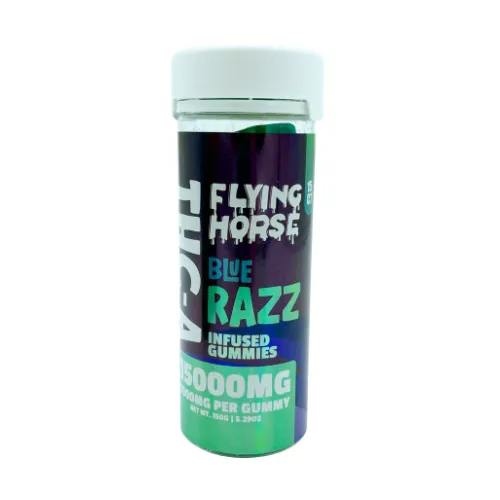
Blue Razz

92
https://airtable.com/appWUsGD3byrYcN3l/tblEtb1aIH5Xk4Nh9/viwx3HbRc2OBn02xl/recJi9CDLeliZleKr/fld2GYgNi5VwfLA0b/attvMIUMZWz2Ngpcw
recJi9CDLeliZleKr
34.99
Flying Horse - Exotic Blend Gummies - 15000mg - 15ct- Blue Razz
Text Link
Mango Pineapple

100
https://airtable.com/appWUsGD3byrYcN3l/tblEtb1aIH5Xk4Nh9/viwx3HbRc2OBn02xl/rec6fW3lvAAAtMUtr/fld2GYgNi5VwfLA0b/attvMIUMZWz2Ngpcw
rec6fW3lvAAAtMUtr
34.99
Flying Horse - Exotic Blend Gummies - 15000mg - 15ct- Mango Pineapple
Text Link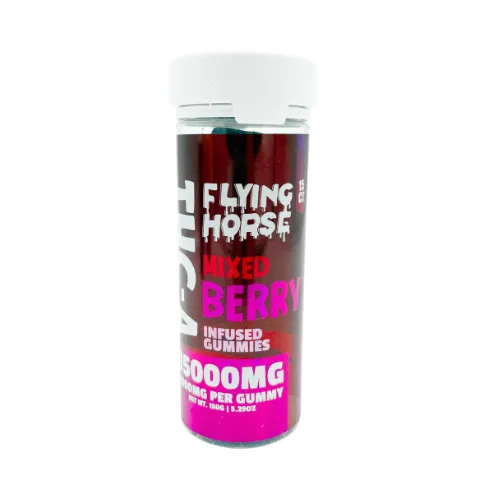
Mixed Berry

92
https://airtable.com/appWUsGD3byrYcN3l/tblEtb1aIH5Xk4Nh9/viwx3HbRc2OBn02xl/reckqH4HtS6Bi3Fqc/fld2GYgNi5VwfLA0b/attvMIUMZWz2Ngpcw
reckqH4HtS6Bi3Fqc
34.99
Flying Horse - Exotic Blend Gummies - 15000mg - 15ct- Mixed Berry
Text Link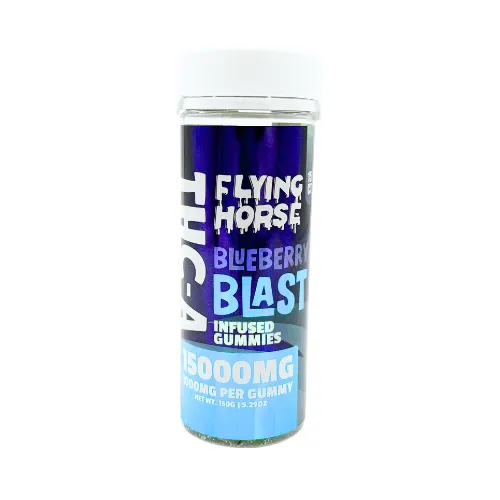
Blueberry Blast

96
https://airtable.com/appWUsGD3byrYcN3l/tblEtb1aIH5Xk4Nh9/viwx3HbRc2OBn02xl/recKHLStgO3GQYGw1/fld2GYgNi5VwfLA0b/attvMIUMZWz2Ngpcw
recKHLStgO3GQYGw1
34.99
Flying Horse - Exotic Blend Gummies - 15000mg - 15ct- Blueberry Blast
Text Link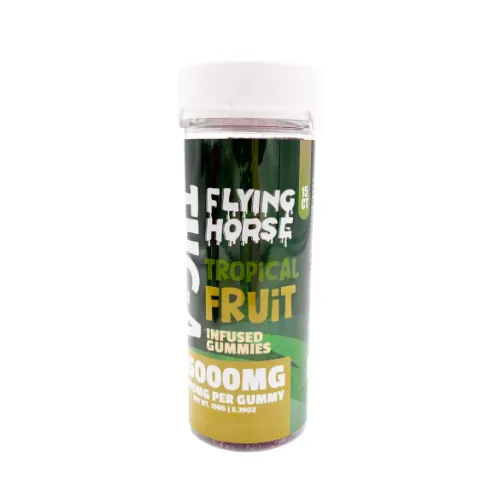
Tropical Fruit

100
https://airtable.com/appWUsGD3byrYcN3l/tblEtb1aIH5Xk4Nh9/viwx3HbRc2OBn02xl/rec6z5o0QKdKV0Nsw/fld2GYgNi5VwfLA0b/attvMIUMZWz2Ngpcw
rec6z5o0QKdKV0Nsw
34.99
Flying Horse - Exotic Blend Gummies - 15000mg - 15ct- Tropical Fruit
Text Link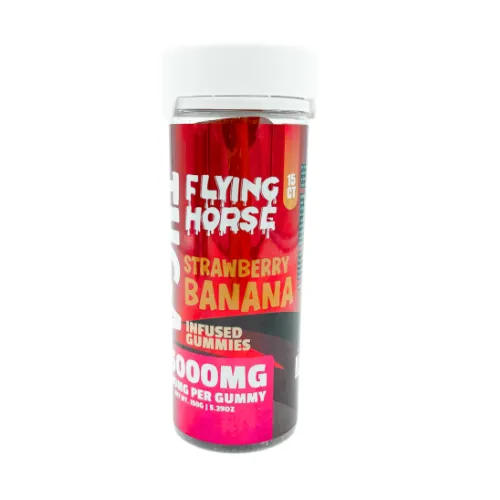
Strawberry Banana

95
https://airtable.com/appWUsGD3byrYcN3l/tblEtb1aIH5Xk4Nh9/viwx3HbRc2OBn02xl/recmqtTi9Dd0fWuLS/fld2GYgNi5VwfLA0b/attvMIUMZWz2Ngpcw
recmqtTi9Dd0fWuLS
34.99
Flying Horse - Exotic Blend Gummies - 15000mg - 15ct- Strawberry Banana
Text Link
Razzarine Twist

0
https://airtable.com/appWUsGD3byrYcN3l/tblEtb1aIH5Xk4Nh9/viwx3HbRc2OBn02xl/rec9Lz8lQ6ojaG7Ed/fld2GYgNi5VwfLA0b/attUq6vcQUV7jDyBA
rec9Lz8lQ6ojaG7Ed
24.99
Planet P - THCP & D9 Meteorbite Gummies - 400mg- Razzarine Twist
Text Link
Melonberry Blast

0
https://airtable.com/appWUsGD3byrYcN3l/tblEtb1aIH5Xk4Nh9/viwx3HbRc2OBn02xl/recsB56oppZGuqLC7/fld2GYgNi5VwfLA0b/attuzLug9EoxjviMY
recsB56oppZGuqLC7
24.99
Planet P - THCP & D9 Meteorbite Gummies - 400mg- Melonberry Blast
Text Link![]()
Rocket Pop
46
https://airtable.com/appWUsGD3byrYcN3l/tblEtb1aIH5Xk4Nh9/viwx3HbRc2OBn02xl/recV1McqrUSwrcVhU/fld2GYgNi5VwfLA0b/attjEFC2j0O5Ddk7h
recV1McqrUSwrcVhU
39.99
Dome Wrecker - D9 | THC-P Gummies - 11,000mg- Rocket Pop
Text Link![]()
Mystery
41
https://airtable.com/appWUsGD3byrYcN3l/tblEtb1aIH5Xk4Nh9/viwx3HbRc2OBn02xl/recDerm2OicIYQKtX/fld2GYgNi5VwfLA0b/atttz9rD4mpUz05Rq
recDerm2OicIYQKtX
39.99
Dome Wrecker - D9 | THC-P Gummies - 11,000mg- Mystery
Text Link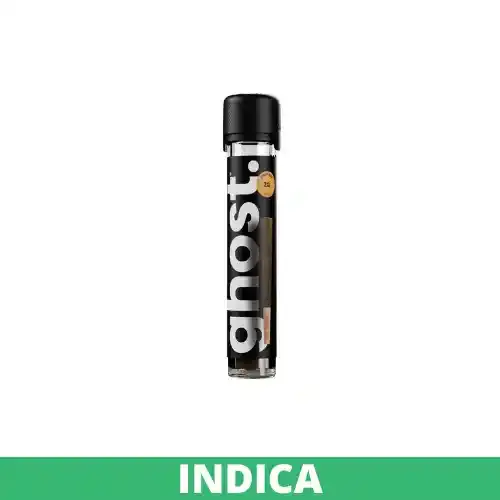

Juicy Pop
23
https://airtable.com/appWUsGD3byrYcN3l/tblEtb1aIH5Xk4Nh9/viwx3HbRc2OBn02xl/recJJbUZa4HbspTIT/fld2GYgNi5VwfLA0b/attmXQnFVHkgfuwD9
recJJbUZa4HbspTIT
9.99
Ghost - THCA Hash Hole Pre Rolls - 2g-Juicy Pop
Text Link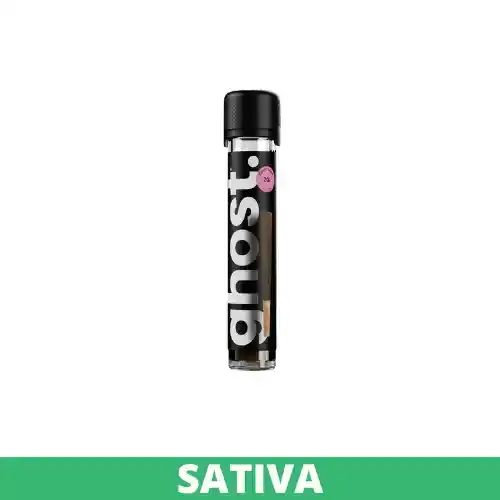

Candyland
24
https://airtable.com/appWUsGD3byrYcN3l/tblEtb1aIH5Xk4Nh9/viwx3HbRc2OBn02xl/recjrTVXaRSevNVXZ/fld2GYgNi5VwfLA0b/attAoytH17ihwGESB
recjrTVXaRSevNVXZ
9.99
Ghost - THCA Hash Hole Pre Rolls - 2g-Candyland
Text Link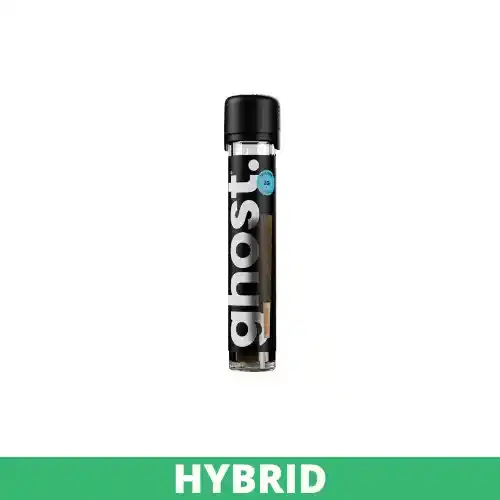

True Blue
39
https://airtable.com/appWUsGD3byrYcN3l/tblEtb1aIH5Xk4Nh9/viwx3HbRc2OBn02xl/recs8nUxgRyftzfYY/fld2GYgNi5VwfLA0b/att0pQhDQxsmLN06j
recs8nUxgRyftzfYY
9.99
Ghost - THCA Hash Hole Pre Rolls - 2g-True Blue
Text Link

Backwoods Diesel + Delta Blues
18
https://airtable.com/appWUsGD3byrYcN3l/tblEtb1aIH5Xk4Nh9/viwx3HbRc2OBn02xl/rec9DdGl5xKtAmdv0/fld2GYgNi5VwfLA0b/att6VoySwvPOBslgY
rec9DdGl5xKtAmdv0
44.99
Flying Horse - Wild n Black 3-in-1 Vape - 9g-Backwoods Diesel + Delta Blues
Text Link

Track Burner + Candy Heat
23
https://airtable.com/appWUsGD3byrYcN3l/tblEtb1aIH5Xk4Nh9/viwx3HbRc2OBn02xl/recOyScH7Kk4uwawT/fld2GYgNi5VwfLA0b/att6VoySwvPOBslgY
recOyScH7Kk4uwawT
44.99
Flying Horse - Wild n Black 3-in-1 Vape - 9g-Track Burner + Candy Heat
Text Link

Grape Gas + Heat OG
22
https://airtable.com/appWUsGD3byrYcN3l/tblEtb1aIH5Xk4Nh9/viwx3HbRc2OBn02xl/recofPlxd0fZ8s9Fr/fld2GYgNi5VwfLA0b/att6VoySwvPOBslgY
recofPlxd0fZ8s9Fr
44.99
Flying Horse - Wild n Black 3-in-1 Vape - 9g-Grape Gas + Heat OG
Text Link

Dust Bowl + Patch Berry
35
https://airtable.com/appWUsGD3byrYcN3l/tblEtb1aIH5Xk4Nh9/viwx3HbRc2OBn02xl/recLN19qaoiQhS55T/fld2GYgNi5VwfLA0b/att6VoySwvPOBslgY
recLN19qaoiQhS55T
44.99
Flying Horse - Wild n Black 3-in-1 Vape - 9g-Dust Bowl + Patch Berry
Text Link

Breeze Escape + Ravens Blood
39
https://airtable.com/appWUsGD3byrYcN3l/tblEtb1aIH5Xk4Nh9/viwx3HbRc2OBn02xl/rec3oP1tIqGmZo02B/fld2GYgNi5VwfLA0b/att6VoySwvPOBslgY
rec3oP1tIqGmZo02B
44.99
Flying Horse - Wild n Black 3-in-1 Vape - 9g-Breeze Escape + Ravens Blood
Text Link

Island Blast + Ice Cream Slap
19
https://airtable.com/appWUsGD3byrYcN3l/tblEtb1aIH5Xk4Nh9/viwx3HbRc2OBn02xl/recLTsSeoMZCcGiQT/fld2GYgNi5VwfLA0b/att6VoySwvPOBslgY
recLTsSeoMZCcGiQT
44.99
Flying Horse - Wild n Black 3-in-1 Vape - 9g-Island Blast + Ice Cream Slap
Text Link

Pineapple Breeze | 3.5g
49
recKHAptBBsCif59I
39.99
Top Shelf Hemp Co - THCA Flower-Pineapple Breeze | 3.5g
Text Link

Pineapple Breeze | 7g
49
recYXW2rxONyCYSEt
59.99
Top Shelf Hemp Co - THCA Flower-Pineapple Breeze | 7g
Text Link

Pineapple Breeze | 28g (1oz)
6
recpSMlJev6x6wuLc
199.99
Top Shelf Hemp Co - THCA Flower-Pineapple Breeze | 28g (1oz)
Text Link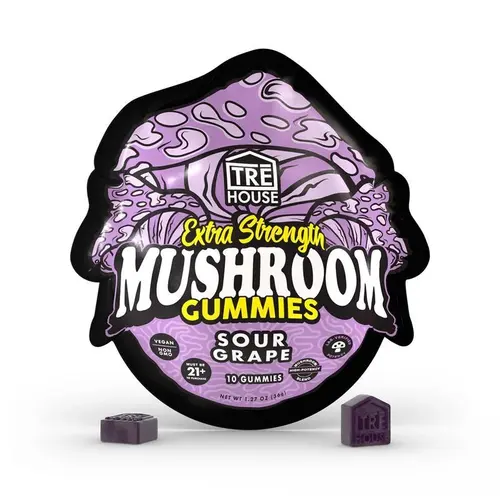
Sour Grape

98
https://airtable.com/appWUsGD3byrYcN3l/tblEtb1aIH5Xk4Nh9/viwx3HbRc2OBn02xl/receZPymST0C0KZnF/fld2GYgNi5VwfLA0b/attvWHJIWkrwV5Xy2
receZPymST0C0KZnF
29.99
TRĒ House - Extra Strength Mushroom Gummies- Sour Grape
Text Link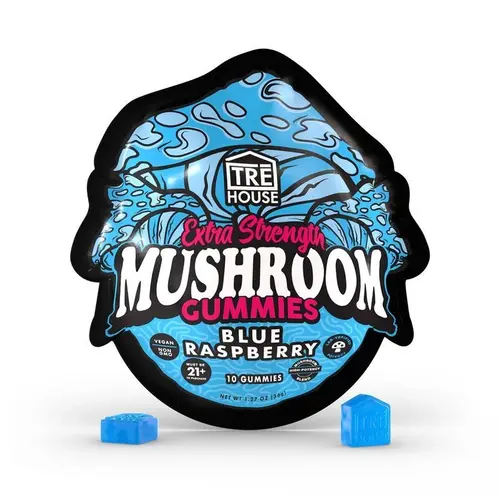
Blue Raspberry

88
https://airtable.com/appWUsGD3byrYcN3l/tblEtb1aIH5Xk4Nh9/viwx3HbRc2OBn02xl/recItswmXWTIEufMe/fld2GYgNi5VwfLA0b/attTlh23HRoq5JRCc
recItswmXWTIEufMe
29.99
TRĒ House - Extra Strength Mushroom Gummies- Blue Raspberry
Text Link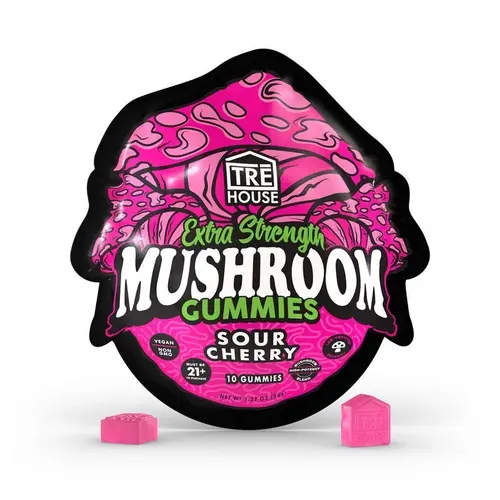
Sour Cherry

96
https://airtable.com/appWUsGD3byrYcN3l/tblEtb1aIH5Xk4Nh9/viwx3HbRc2OBn02xl/recz19GjfnZH0COuw/fld2GYgNi5VwfLA0b/attM9Jm3w9uLpphRD
recz19GjfnZH0COuw
29.99
TRĒ House - Extra Strength Mushroom Gummies- Sour Cherry
Text Link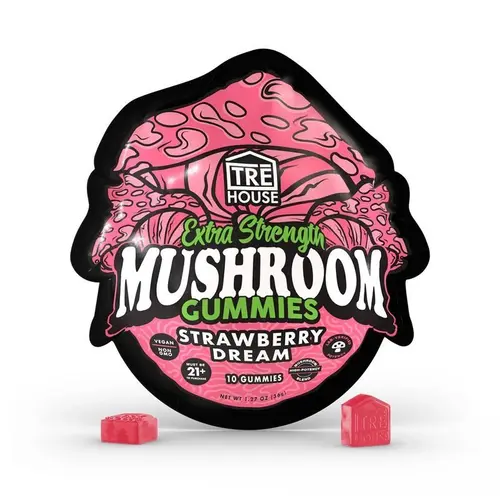
Strawberry Dream

100
https://airtable.com/appWUsGD3byrYcN3l/tblEtb1aIH5Xk4Nh9/viwx3HbRc2OBn02xl/recNNYdo5PJ8EU9UZ/fld2GYgNi5VwfLA0b/attwWIxvHEgZ3SyAz
recNNYdo5PJ8EU9UZ
29.99
TRĒ House - Extra Strength Mushroom Gummies- Strawberry Dream
Text Link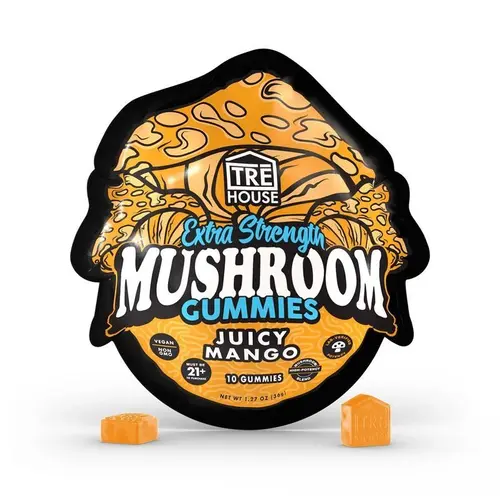
Juicy Mango

98
https://airtable.com/appWUsGD3byrYcN3l/tblEtb1aIH5Xk4Nh9/viwx3HbRc2OBn02xl/rec7suGFIetMjlXYk/fld2GYgNi5VwfLA0b/attyq7T3qwYMAvyAl
rec7suGFIetMjlXYk
29.99
TRĒ House - Extra Strength Mushroom Gummies- Juicy Mango
Text Link
Sour Tropical

99
https://airtable.com/appWUsGD3byrYcN3l/tblEtb1aIH5Xk4Nh9/viwx3HbRc2OBn02xl/recONCM9VOngpDcRq/fld2GYgNi5VwfLA0b/att2yBwptx25cGmzU
recONCM9VOngpDcRq
29.99
TRĒ House - Extra Strength Mushroom Gummies- Sour Tropical
Text Link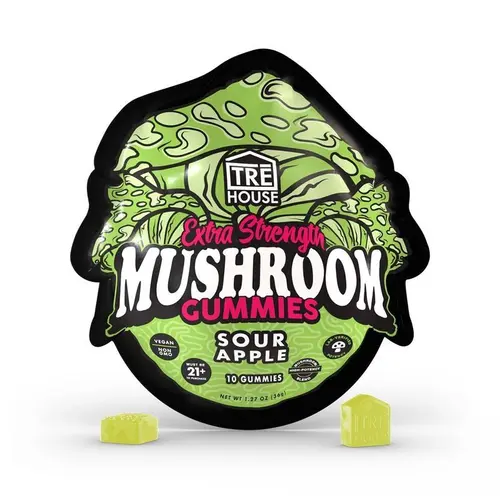
Sour Apple

100
https://airtable.com/appWUsGD3byrYcN3l/tblEtb1aIH5Xk4Nh9/viwx3HbRc2OBn02xl/recZZsGg00nfRX5nS/fld2GYgNi5VwfLA0b/attLnWpl2A2netQnr
recZZsGg00nfRX5nS
29.99
TRĒ House - Extra Strength Mushroom Gummies- Sour Apple
Text Link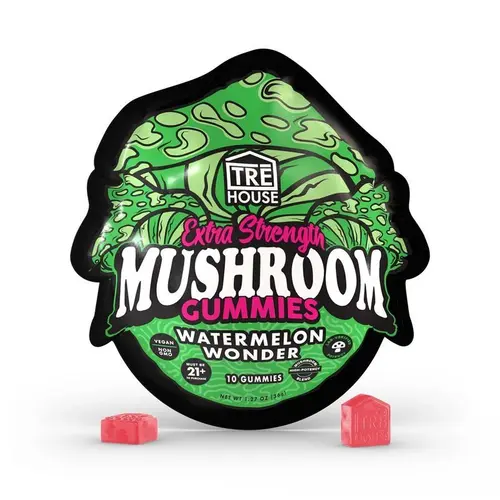
Watermelon Wonder

99
https://airtable.com/appWUsGD3byrYcN3l/tblEtb1aIH5Xk4Nh9/viwx3HbRc2OBn02xl/recgnczV63Urhqawz/fld2GYgNi5VwfLA0b/attgKqHGTXzljCKql
recgnczV63Urhqawz
29.99
TRĒ House - Extra Strength Mushroom Gummies- Watermelon Wonder
Text Link
Blackberry Acai

0
https://media.aeropage.io/api/docproxy/token/b4c9c7104c2981023a27e3f3456bfd6a/recbMm6xiwWgpqDyp
29.99
recbMm6xiwWgpqDyp
39.99
Delta Extrax - THCh | THCjd Lights Out Gummies - 3500mg - Blackberry Acai
Text Link
Kiwi Watermelon

0
https://media.aeropage.io/api/docproxy/token/b4c9c7104c2981023a27e3f3456bfd6a/rec0IYgNsZKT85GGh
29.99
rec0IYgNsZKT85GGh
39.99
Delta Extrax - THCh | THCjd Lights Out Gummies - 3500mg - Kiwi Watermelon
Text Link
Purple Berry

37
https://media.aeropage.io/api/docproxy/token/b4c9c7104c2981023a27e3f3456bfd6a/recz3ddcPiY33D16R
29.99
recz3ddcPiY33D16R
39.99
Delta Extrax - THCh | THCjd Lights Out Gummies - 3500mg - Purple Berry
Text Link
Strawberry Gelato

68
https://airtable.com/appWUsGD3byrYcN3l/tblEtb1aIH5Xk4Nh9/viwx3HbRc2OBn02xl/recXM4TI1htWh3o3J/fld2GYgNi5VwfLA0b/attUt1BX3z8xnpt6c
recXM4TI1htWh3o3J
15.99
Cutleaf - Mushroom Gummies - Sunrise - 1000mg- Strawberry Gelato
Text Link
Mango Gelato

81
https://airtable.com/appWUsGD3byrYcN3l/tblEtb1aIH5Xk4Nh9/viwx3HbRc2OBn02xl/recgxWTjSVWCiJhHa/fld2GYgNi5VwfLA0b/attHKWKmYTnMLf9wT
recgxWTjSVWCiJhHa
15.99
Cutleaf - Mushroom Gummies - Sunrise - 1000mg- Mango Gelato





.webp)
